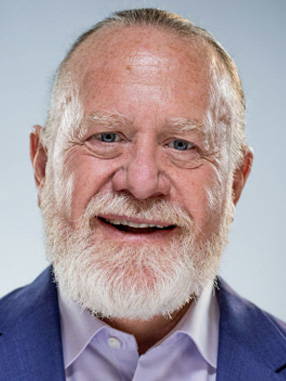

 In all the recent uproar (New York Times, "Google Told to Turn Over User Data of YouTube," Michael Helft, 4 July 2008) about the fact that Google has been forced to turn over a large pile of personally-identifiable information to Viacom as part of a copyright dispute (Opinion), there is a really interesting angle pointed out by Dan Brickley (co-creator of FOAF and general Semantic Web troublemaker)... more
In all the recent uproar (New York Times, "Google Told to Turn Over User Data of YouTube," Michael Helft, 4 July 2008) about the fact that Google has been forced to turn over a large pile of personally-identifiable information to Viacom as part of a copyright dispute (Opinion), there is a really interesting angle pointed out by Dan Brickley (co-creator of FOAF and general Semantic Web troublemaker)... more
 Some domainers, having forgone parking revenue to avoid any claims of trademark violation, have then found themselves thrown into legal trouble with trademark claimants because of actions taken by a third party (ISPs and PC manufacturers). In addition to the resulting direct legal cost, the possibility of action by a third party heightens uncertainty and steals management's attention away from its real job. The troubles for the domain name owner start when a surfer who enters in the browser an inactive domain name is redirected to a Web page with advertising instead of getting a page that says there is an input error... more
Some domainers, having forgone parking revenue to avoid any claims of trademark violation, have then found themselves thrown into legal trouble with trademark claimants because of actions taken by a third party (ISPs and PC manufacturers). In addition to the resulting direct legal cost, the possibility of action by a third party heightens uncertainty and steals management's attention away from its real job. The troubles for the domain name owner start when a surfer who enters in the browser an inactive domain name is redirected to a Web page with advertising instead of getting a page that says there is an input error... more
 The approach is growing in popularity, and Google, Microsoft and Amazon are among the many large companies working on ways to attract users to their offerings, with Google Apps, Microsoft's Live Mesh and Amazon S3 all signing up customers as they try to figure out what works and what can turn a profit... In the real world national borders, commercial rivalries and political imperatives all come into play... The issue was recently highlighted by reports that the Canadian government has a policy of not allowing public sector IT projects to use US-based hosting services because of concerns over data protection. more
The approach is growing in popularity, and Google, Microsoft and Amazon are among the many large companies working on ways to attract users to their offerings, with Google Apps, Microsoft's Live Mesh and Amazon S3 all signing up customers as they try to figure out what works and what can turn a profit... In the real world national borders, commercial rivalries and political imperatives all come into play... The issue was recently highlighted by reports that the Canadian government has a policy of not allowing public sector IT projects to use US-based hosting services because of concerns over data protection. more
 Well, given the amount of malicious JavaScript, malware, and other possibilities to use Facebook (and other similar social networking platforms) for abuse, I certainly wouldn't categorize this news as a "clever move"... In fact, I foresee this as an extraordinarily short-sighted move with far-reaching security implications -- which will allow the levels of malicious abuse to reach new heights. more
Well, given the amount of malicious JavaScript, malware, and other possibilities to use Facebook (and other similar social networking platforms) for abuse, I certainly wouldn't categorize this news as a "clever move"... In fact, I foresee this as an extraordinarily short-sighted move with far-reaching security implications -- which will allow the levels of malicious abuse to reach new heights. more
 Your wireless carrier (in the U.S., probably AT&T or Verizon Wireless) has a lot of control over the handset you can use and the applications that can run on that device. In fact, wireless carriers routinely ask for (and get) an enormous slice of the revenue from applications that work on their networks, and they force handset manufacturers to jump through all kinds of hoops in order to be allowed to sell devices that can connect to these networks... This has had bad effects on the ecosystem of the wireless world. more
Your wireless carrier (in the U.S., probably AT&T or Verizon Wireless) has a lot of control over the handset you can use and the applications that can run on that device. In fact, wireless carriers routinely ask for (and get) an enormous slice of the revenue from applications that work on their networks, and they force handset manufacturers to jump through all kinds of hoops in order to be allowed to sell devices that can connect to these networks... This has had bad effects on the ecosystem of the wireless world. more
 Wired Magazine (Aug 2007 print issue, page 50) defines "social operating system" as a platform for online living; a social network such as MySpace that seamlessly integrates activities including entertainment and shopping. But Jon Udell points out that MySpace is not Your Space. He envisions a future in which each child would receive his or her own chunk of managed storage at birth.. Of course, we'd want the ability for Bob's Space to connect with Jane's Space - suppose they are siblings starring in the same family vacation video, or co-authors of a research report? more
Wired Magazine (Aug 2007 print issue, page 50) defines "social operating system" as a platform for online living; a social network such as MySpace that seamlessly integrates activities including entertainment and shopping. But Jon Udell points out that MySpace is not Your Space. He envisions a future in which each child would receive his or her own chunk of managed storage at birth.. Of course, we'd want the ability for Bob's Space to connect with Jane's Space - suppose they are siblings starring in the same family vacation video, or co-authors of a research report? more
 We've had a number of questions (and seen plenty of commentary) regarding the recent launch of the iPhone and how it might affect us and the mobile web in general. ...the iPhone changes the way that tastemakers think about their online existence. Interacting with the web, clearly, is no longer a solitary, sedentary and constrained activity.Now I've personally believed this for a while, so arguably it's no big deal -- the long-term evolution of the web to become a largely mobile (and, by the way, subtly different) medium is inevitable. more
We've had a number of questions (and seen plenty of commentary) regarding the recent launch of the iPhone and how it might affect us and the mobile web in general. ...the iPhone changes the way that tastemakers think about their online existence. Interacting with the web, clearly, is no longer a solitary, sedentary and constrained activity.Now I've personally believed this for a while, so arguably it's no big deal -- the long-term evolution of the web to become a largely mobile (and, by the way, subtly different) medium is inevitable. more
 Global internet use has surpassed six billion users, yet stark divides persist between regions, genders and urban-rural populations. Meanwhile, download speeds have surged and smartphones now dominate how people access the web worldwide. more
Global internet use has surpassed six billion users, yet stark divides persist between regions, genders and urban-rural populations. Meanwhile, download speeds have surged and smartphones now dominate how people access the web worldwide. more
 As smartphones become the primary gateway to the internet for billions, a critical question emerges: does app-based digital fluency prepare users for the demands of computer-based work in a modern economy? more
As smartphones become the primary gateway to the internet for billions, a critical question emerges: does app-based digital fluency prepare users for the demands of computer-based work in a modern economy? more
 The hiQ ruling erased legal protections against commercial scraping, leaving infrastructure providers to absorb escalating costs. Without federal action defining data misappropriation, a free-rider AI economy could undermine open networks, investment, and long-term data integrity. more
The hiQ ruling erased legal protections against commercial scraping, leaving infrastructure providers to absorb escalating costs. Without federal action defining data misappropriation, a free-rider AI economy could undermine open networks, investment, and long-term data integrity. more
Cloudflare has detailed the cause of a global outage in a post-mortem report, revealing that a flawed internal database change -- not a cyberattack -- caused widespread service disruption across its network and customer systems. more
Cloudflare's global outage caused cascading failures across the internet, reigniting concerns about the concentration of web infrastructure and the urgent need for more resilient, transparent systems to support critical online services. more
A major Amazon Web Services outage briefly disrupted millions of websites, apps, and smart devices worldwide. The DNS-related failure exposed the internet's heavy dependence on a few cloud providers before full recovery was achieved. more
 The Secure Hosting Alliance has introduced a certification programme to establish clear, verifiable standards for internet hosting providers, aiming to improve accountability, boost transparency, and strengthen the trust that underpins global online infrastructure. more
The Secure Hosting Alliance has introduced a certification programme to establish clear, verifiable standards for internet hosting providers, aiming to improve accountability, boost transparency, and strengthen the trust that underpins global online infrastructure. more
 Around the world, communities are racing to close the digital divide. From fiber deployments in rural areas to affordable smartphones and digital skills training, the goal is clear: connect the unconnected. But as we pursue that goal, a deeper question emerges that demands just as much urgency as infrastructure: When people get online, can they actually participate in the digital world? more
Around the world, communities are racing to close the digital divide. From fiber deployments in rural areas to affordable smartphones and digital skills training, the goal is clear: connect the unconnected. But as we pursue that goal, a deeper question emerges that demands just as much urgency as infrastructure: When people get online, can they actually participate in the digital world? more